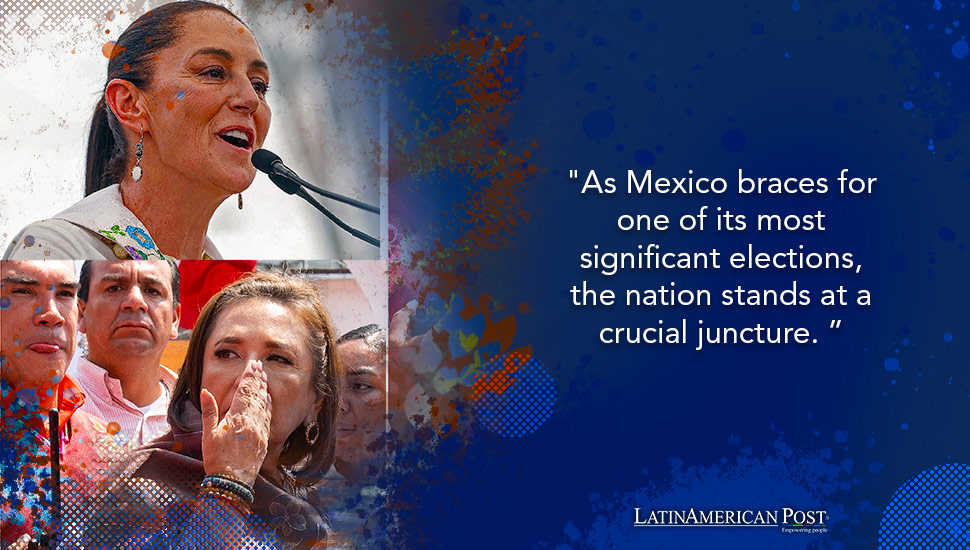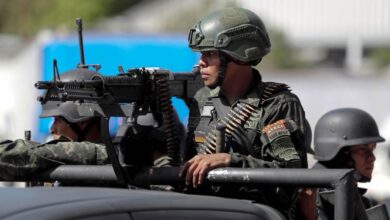What to Know About Mexico’s 2024 Presidential Election

On June 2, Mexicans will vote in the most significant election in the country’s history, deciding over 20,700 federal and local positions. With Claudia Sheinbaum and Xóchitl Gálvez as the frontrunners, the presidential race could see Mexico elect its first female president, marking a historic milestone.
As Mexico braces for one of its most significant elections, the nation stands at a crucial juncture. On June 2, millions of Mexicans will head to the polls to elect a new president, among other federal and local officials, in what is described as the most significant election in the country’s history. This pivotal event will determine over 20,700 positions, including 500 seats in the House of Representatives and 128 in the Senate.
Approximately 100 million Mexicans are expected to participate this year, reflecting a notable increase from previous elections. According to the Instituto Nacional Electoral (INE), this surge represents an 11 million voter increase over the last presidential election 2018. This heightened engagement is attributed to the critical nature of this election and the high stakes involved. Your vote matters in shaping the future of Mexico.
Presidential Candidates and Coalitions
The presidential race is the focal point of this electoral process. Claudia Sheinbaum of the Morena party and Xóchitl Gálvez of the conservative coalition “Strength and Heart for Mexico” are the leading contenders. Sheinbaum, a former mayor of Mexico City and protégé of outgoing President Andrés Manuel López Obrador (AMLO), aims to continue his policies. In contrast, Gálvez, a former senator and businessperson of Otomi Indigenous descent, represents a call for change and a tougher stance on crime and corruption.
Historical Context of Female Leadership in Mexico
If either Sheinbaum or Gálvez wins, it will be a historic moment for Mexico, marking the election of the country’s first female president. This would be a significant step forward in a nation where women have historically faced substantial political and social equality barriers. The presence of two strong female candidates at the forefront of this race underscores a broader shift toward gender parity in Mexican politics.
The voting process will occur across 170,000 polling stations nationwide, with a voter identification card required for participation. Mexico’s extensive diaspora, with over 11 million Mexicans living abroad, will also have the opportunity to vote online, by post, or at Mexican consulates. Special provisions were made for early voting from May 6 through May 20 for individuals with disabilities or limited mobility.
Polls will open at 8 AM and close at 6 PM, with those in line by the closing time permitted to vote. After the polls close, election officers will begin counting the results, with real-time updates provided by the INE. A second count to finalize the results will occur from June 5 through June 8.
The Major Political Coalitions
Two primary coalitions have emerged in this electoral cycle: “Strength and Heart for Mexico,” comprising the National Action Party (PAN), the Institutional Revolutionary Party (PRI), and the Democratic Revolution Party (PRD), and “Let’s Keep Making History,” led by Morena in alliance with the Green Ecological Party of Mexico (Verde) and the Labor Party (PT).
Carlos Bravo Regidor, a political analyst based in Mexico City, describes the current political landscape as unprecedented. He highlights the transformative impact of López Obrador, who has brought about an entirely new political configuration. Historically rival parties, such as the National Action Party (PAN), the Institutional Revolutionary Party (PRI), and the Democratic Revolution Party (PRD), have formed the coalition ‘Strength and Heart for Mexico’ to counteract López Obrador’s influence.
The campaign is centered around key issues such as security, social programs, and corruption. This election is seen by many as a referendum on López Obrador’s presidency. Sheinbaum, pledging to continue AMLO’s policies, focuses on expanding social programs and significant infrastructure projects like the Maya Train. Gálvez, on the other hand, has criticized AMLO’s approach to crime and promises to tackle violence and corruption more aggressively.
Impact of Crime and Violence
The pervasive violence in Mexico has significantly impacted the election campaign. Between September and May, an estimated 34 candidates were killed, underscoring the dangerous climate in which these elections are being conducted. The involvement of drug cartels and organized crime has been blamed for these killings, which predominantly affect local races.
Most polls show Sheinbaum with a substantial lead over Gálvez. López Obrador’s enduring popularity will benefit Sheinbaum and the Morena coalition. Political analyst Regidor notes that while Gálvez has run a dynamic campaign, her association with the PAN and PRI parties has hindered her ability to present herself as a candidate for change. The historical baggage of these parties, particularly their association with corruption and violence, weighs heavily on voters’ perceptions.
López Obrador’s Legacy
As AMLO’s term comes to an end, his legacy is mixed. He has maintained high approval ratings, driven by his focus on addressing poverty and expanding social programs. However, his administration has faced criticism for controversial initiatives perceived as undermining the judiciary’s independence and expanding the military’s role in public security and infrastructure projects. His failure to significantly reduce crime and resolve the issue of missing persons has also drawn criticism.
Despite his popularity, López Obrador cannot seek a second term due to Mexico’s constitutional limitation of the presidency to a single term, a legacy of the Mexican Revolution aimed at preventing prolonged authoritarian rule.
Also read: Mexico Must Address Rising Gastroesophageal Reflux Disease Crisis
The upcoming election is a defining moment for Mexico, offering the potential for significant political and social change that could shape the nation’s future for years to come. With Claudia Sheinbaum and Xóchitl Gálvez representing starkly different visions for the country’s future, voters are faced with a critical choice. The outcome will determine Mexico’s next president and shape the nation’s approach to crucial issues such as security, corruption, and social justice. As Mexico stands on the brink of potentially electing its first female president, the world watches keenly, recognizing the profound implications this election holds for the country and its democratic trajectory.





